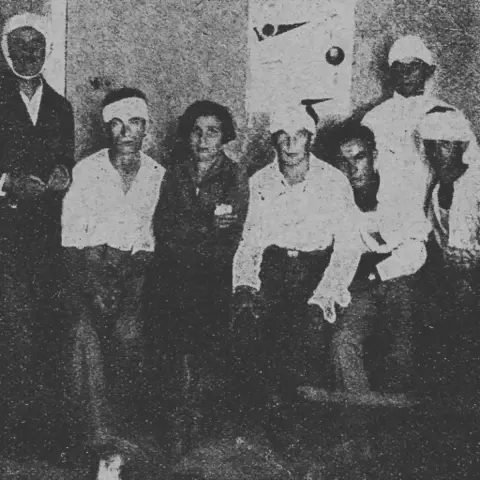"The Zionist War on Yiddish in Palestine", por @ayoub en Der Spekter.
«Language played a crucial role in defining the Zionist ideal. Many of those involved in advocating for Yiddish as a recognized language of the Jewish people saw their opponents as those advocating Hebrew as the sole language of the Jewish people, and vice versa. Given the context of pre-World War II politics, this also meant a certain intersection between these debates and debates on capitalism and socialism as well as diasporism, nationalism and internationalism.
(...)
The anti-Yiddish attitude prevalent among Zionists translated itself into what Israeli scholar Avi Lang called “linguistic fascism in the land of Zion.” Lang notes that “family lore in most Ashkenazi households in Israel will almost inevitably include stories of grandparents and great-grandparents experiencing discrimination whenever they spoke Yiddish in the streets of 1940s and 1950s Tel Aviv,” which included being “hit or spat at.”
(...)
The creation of a new Jewish identity under Zionism necessitated the presence of an identity that it could emulate or relate to and an “other” that it should discard. For Zionists the identity to be discarded was clear: the “diaspora Jew,” the Jew facing antisemitism in the West, who was viewed as “culturally stagnant, passive and backward.”
The European Gentile, the very source of the antisemitism that prompted Jews to turn to Zionism as a solution in the first place, on the other hand, became the identity Zionists wished to emulate. Putting it in a different way, the oppressor was to be emulated while the oppressed was to be discarded as a weak and dying breed.
(...)
There is a conscious effort to promote Jewish diasporist identity, which, in practice, means rejecting at least two of the four principles of Zionism as defined by Grabski: “The primacy of the Jewish community in Israel over Jewish communities around the world” and “attributing to Hebrew the status of being the main or even only national language in Palestine.” Whether the third principle, “the elevation of ethnic-religious conflicts over class conflicts,” is being challenged, and therefore linking diasporism to a more class-conscious internationalism, will depend on whether the rejection of Zionism is always coupled with an explicit politics of solidarity with Palestinians oppressed by the State of Israel.»
https://www.derspekter.org/the-zionist-war-on-yiddish-in-palestine/














